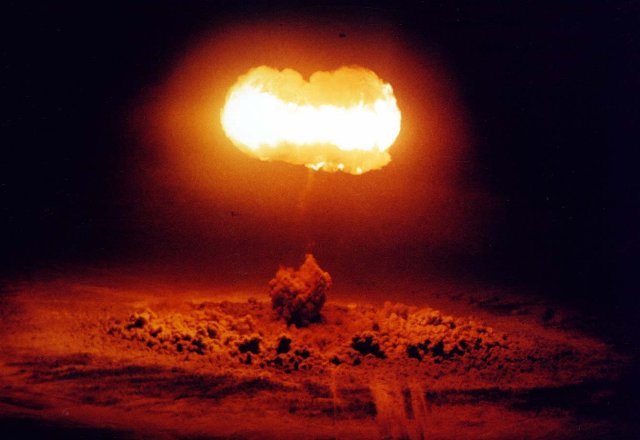Authorities in the ex-Soviet republic of Moldova are hunting the alleged Russian mastermind of a failed plan to sell weapons-grade uranium on the black market, a new US Senate report said Tuesday.
AFP reported in June that Moldova police had arrested six suspects and seized a sample of Uranium-235 in a sting that thwarted a potential customer, described by a top official as “a citizen of a Muslim country in Africa.”
But the report by staff for Senator Richard Lugar, the top Republican on the Senate Foreign Relations Committee, includes the alarming charge that the group also claimed to possess plutonium, far less of which is needed to make a bomb.
And the report urges stepped-up counter-proliferation cooperation with Russia in light of the possible buyer’s apparent region of origin, citing a possible link to Islamist extremist groups.
“Should the existence of a legitimate buyer (or middleman) from a region with a history of terror cells be confirmed, then the case would be substantially more alarming than other recent fissile material interdictions, where official agents were the sole potential buyers,” it says.
The report does not name a particular group, but US officials have openly worried about violence by Al-Qaeda in the Islamic Maghreb (AQIM), which chiefly afflicts Algeria, Mauritania, Mali and Niger.
“In addition to the North African, Moldovan authorities are seeking one Russian national, who was the alleged ringleader and fled from Transnistria to Russia, where he and other cohorts are suspected by officials to currently reside,” the report said.
“Russian authorities have received official notification of the arrests,” according to staff for Lugar, who has spearheaded US efforts to safeguard atomic stockpiles in the former Soviet Union.
Asked about the report, US National Security Council spokesman Tommy Vietor said Washington worked with other countries “to thwart this dangerous trade” and praised Moldova for “taking effective action to deal with this case.”
The report also gave fresh details of the attempted transaction, saying the six suspects arrested had claimed to possess nine kilograms (19.8 pounds) of highly enriched uranium, 25 kilograms (55 pounds) of which are needed to make a small nuclear weapon.
Authorities obtained 4.4 grams of highly enriched Uranium-235 oxide in a fake sale for 420,000 euro ($600,000), while the sellers had sought 23 million euro ($30 million) for their entire HEU stash, the report said.
Upon announcing the sting in June, Moldova’s prosecutor general, Vitalie Briceag, had told AFP that authorities there had the help of authorities in Germany, Ukraine and the United States in their investigation.
It was the second such interdiction in Moldova in the past year.
In August 2010, Moldovan police seized a container with 1.8 kilograms (4.0 pounds) of Uranium-238 and arrested a group of suspected traffickers who had sought to sell it for nine million euros (11 million dollars).










